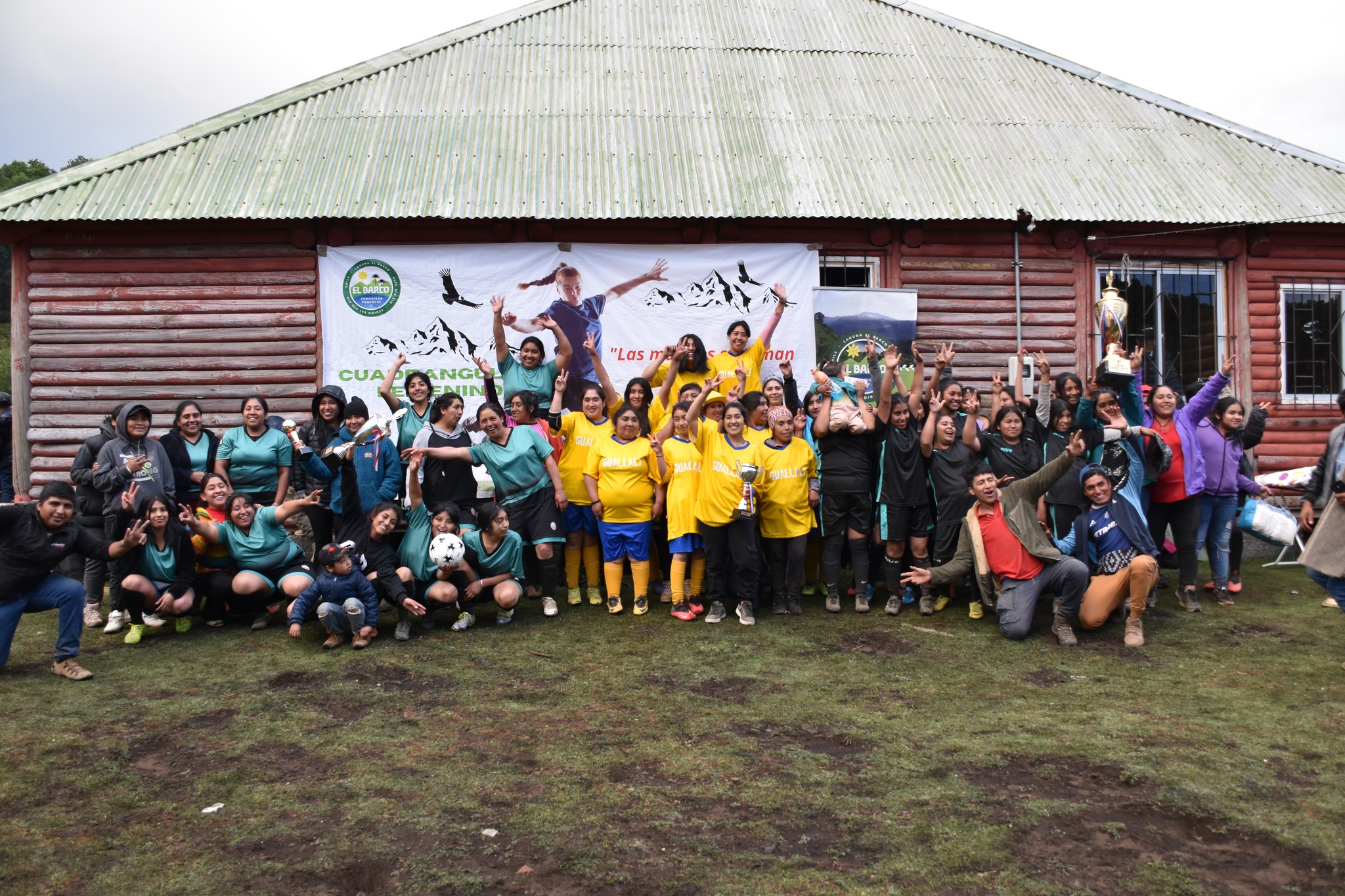In the early 2000s, many families were relocated to this area of Alto Biobío. Over the years, they have developed a tourism hub that has allowed them to create economic, social, and environmental impact.
Reinvention and entrepreneurship are part of the culture, both individually and collectively, across different fields. This is what the Pewenche Community of El Barco, located in Alto Biobío, Biobío Province, observed and applied.
This group originally belonged to Ralco Lepoy and was relocated between 1998 and 2000 due to the construction of the Ralco hydroelectric plant. A total of 54 families were moved, some with productive land and access to irrigation.
While many eventually chose to seek new paths, others stayed, and today there are 78 families. Among the series of actions they had to undertake was promoting tourism, an effort that in those years was carried out with Endesa, now Enel.
"We worked for about 15 years with a tourism model where people came and went without much impact on the community. But starting in 2015, we gave this area a new push. We changed the working dynamics because, in the past, the funds collected by the community through the campground were distributed directly among the people," recalled José Huechecal, president of the El Barco indigenous community.
A New Way of Operating
The leader stated that they were walking a fine line toward dependency on aid. From there, a new operational model was created, where resources would not go directly to families but instead fund co-financed projects and leveraged capital.
Thus, they implemented a new work system with the support of young people and women, alongside the introduction of new tourism services within the community.
"Tourism is one of the pillars that ensures community development for us. What we’re promoting is a growth experience and how it drives social and economic transformations within families to prevent youth emigration. For this, we create job opportunities," he emphasized.
As such, they offer tourism services with a purpose: to generate progress for the community. They provide a campground, picnic areas, restrooms, counters, drinking water, and a sales area, among other amenities.
"Additionally, we offer a disconnection experience since we have no electricity, Wi-Fi, or phones—we emphasize reconnecting with nature. In fact, when visitors make a reservation, they are informed of all community regulations and campground conditions. Based on this, tourists decide whether to come or not, but so far, we’ve had great acceptance and many annual visitors. In 2022, we had around 6,000 people, and this summer, we expect to reach the same number," he projected.
Technical Support
Meanwhile, Andrés Puelma also plays a role in the Pewenche Community of El Barco by providing technical support through a consulting firm, currently working on improving the general irrigation system.
In this sector, aside from a governing board, there is a technical committee responsible for decision-making and developing plans ranging from economic aspects tied to tourism to productive, agricultural, and self-sustainability systems for families. They also serve other communities.
"This also generates jobs in the area. For example, the community and the technical committee were concerned about water management. We proposed a smart water management system using technology to optimize this resource, especially since their existing irrigation system was 20 years old and failing, leading to water loss," he explained.
As a result, the system was modernized by replacing some equipment, boosting field development, livestock activity, and forage productivity to ensure animal feed for winter.
Puelma has also noted—and agrees with José Huechecal’s vision—that young people are taking on more responsibilities, aiding the community’s growth. "The idea is to open space for them, as the president mentioned, so any investment in El Barco must consider social, environmental, and economic impact," he noted.
In this regard, he mentioned their ties with universities, which also provide experts to advise on local issues without neglecting the cultural aspect, where elders play a key role in preserving traditions.







Comments (0)
No comments yet. Be the first to comment!
Leave a comment